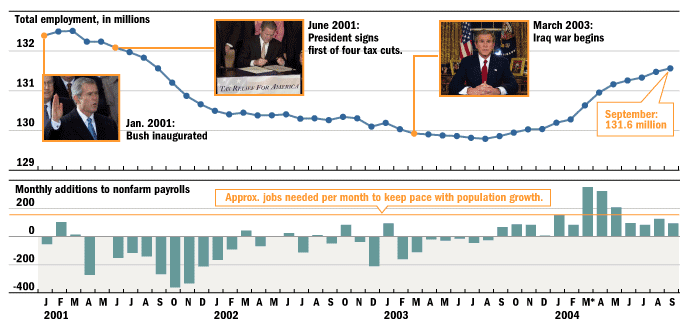sharky
New Yorker
STING2 said:I hope your not going to ignore the fact that 2 million jobs have been created over the past 13 months. In addition, the trend in unemployment is downward. 5.4% unemployment is lower than the average unemployment rate in the 1970s, 1980s, and 1990s, and it is still dropping. If Kerry gets elected, there will be very little for him to do on the economic front except to maintain the growth and low unemployment that Bush has handed him. Anything that Kerry could do to effect the economy won't be felt until August of next year, and by then unemployment will be down near 4.5%, and people will be probably be worried about a labor shortage.
Yes, but so what? You need 180,000 jobs a month to keep pace with population growth. The past four months we have only created around 400,000 jobs. Total employment is still below the point it was at when Bush took office. In fact, after Bush's first tax cut, we were supposed to get more jobs. Instead, we lost alot and stayed low. We haven't even reached the level we were at when Bush signed his first tax cut. And the reason the Republicans continually quote this 2 million jobs in 13 months is because you have to go back that far to make the number look good. Not to mention that Bush never mentions that the jobs that have been created pay less on average than the jobs that were lost. How does a manufacturing job replaced with a minimum wage job good for the economy? From WSJ:
Attachments
Last edited:


